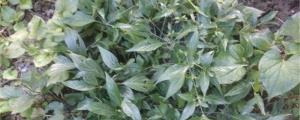Is It Safe to Irrigate Plants with Pool Water?
Most plants need water to survive, and many home gardeners use them to beautify their yards or grow fresh produce. Watering your plants is an essential part of caring for them, but what happens if you run out of tap water or rainwater and only have pool water available? Is it safe to use pool water to irrigate your plants?
The Risks of Using Pool Water on Plants
It is not advisable to use pool water to irrigate plants because of the many different chemicals that are used in most swimming pools to keep them clean and maintain the proper pH levels. Some of these chemicals can harm plants, while others can accumulate in the soil and potentially harm people or animals who come into contact with the plants or consume their fruits or vegetables.
The chlorine used in most pools is the biggest concern for gardeners. While an effective disinfectant that helps to keep pool water free of harmful bacteria, chlorine can kill beneficial soil microbes and burn plant foliage. Additionally, high levels of chlorine in the soil can disrupt the balance of nutrients available to plants and make it difficult for them to grow.
Other chemicals found in pool water, such as cyanuric acid, algaecides, and clarifiers, can also affect the health of plants. Cyanuric acid, for example, can lower the pH levels of soil over time, making it more difficult for plants to absorb nutrients. Algaecides and clarifiers contain copper and other heavy metals, which can accumulate in the soil and leach into the groundwater, potentially contaminating nearby streams, rivers, or wells.
Alternatives to Pool Water for Plant Irrigation
While it is not safe to use pool water on your plants, there are a few alternatives that you could consider using instead. One of the easiest alternatives is to collect rainwater in a rain barrel or other container. Rainwater is naturally soft and free of chemicals, making it ideal for irrigating plants. Additionally, it can help to conserve water and reduce your water bills, especially during dry spells or drought conditions.
If you do not have access to rainwater, you could also use tap water that has been treated with a water conditioner or dechlorinator. These products can help to neutralize the chlorine in tap water and make it safer for plants to absorb. However, be sure to check the label and use only products that are safe for plants, as some may contain other chemicals that could harm your garden.
Conclusion
Irrigating your plants with pool water is not safe and could potentially harm both your plants and the environment. While it may be tempting to use pool water in a pinch, it is best to explore other alternatives, such as rainwater or treated tap water, to ensure the health and safety of your garden. By taking a little extra care and using the right water sources, you can help your plants thrive and enjoy a beautiful garden for years to come.

 how many times do yo...
how many times do yo... how many planted tre...
how many planted tre... how many pine trees ...
how many pine trees ... how many pecan trees...
how many pecan trees... how many plants comp...
how many plants comp... how many plants can ...
how many plants can ... how many plants and ...
how many plants and ... how many pepper plan...
how many pepper plan...





























